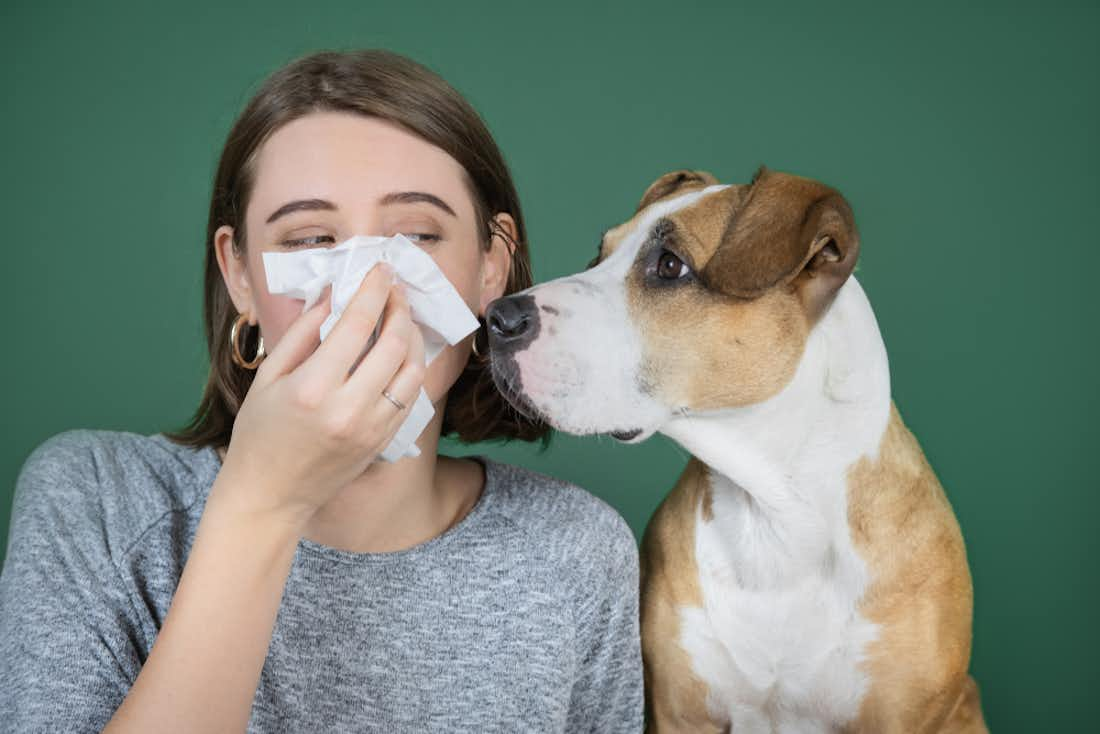Mar 9, 2022
What Does an Allergist Do?
10 minute read
If you wake up in the morning and start coughing, wheezing, or sneezing for seemingly no reason at all, you probably have allergies. And while you can sometimes alleviate allergies with over-the-counter antihistamines alone, it’s not always a one-size-fits-all solution.
If your symptoms are severe or you can’t pinpoint the underlying cause of your discomfort, it might be time to visit a specialist. Allergists are medical professionals who can help you get to the bottom of your allergy mystery.
So what does an allergist do? Where can you find one, and what can you expect on your first visit? We’ve got the answers to all of these questions and more.
What Is an Allergist?
If you’re having joint pain, you’d see an orthopedic specialist. If you’ve got some toothaches, you’d see a dentist. And if you’re struggling to cope with the nagging symptoms of an allergy, you’d see an allergist.
Allergists are medical professionals who specialize in treating allergies and other immune system problems.
In order to become an allergist, you must first complete a residency in pediatrics, internal medicine, or a combination of the two. This comes after years of training and medical school pursuing a career in allergology, the study of allergies.
One of the tricky things about being an allergist is that a professional must have a wide understanding of all organ systems. Allergies affect the nose, throat, eyes, skin, mouth, and even the lungs – so extensive specialty training is necessary to pursue a career in this field.
And with that in mind, you can have faith that your allergist knows what they’re doing. Board-certified allergists have undergone two years of fellowship training and received specialty certification from the American Board of Pediatrics, the American Board of Allergy and Immunology, or the American Board of Internal Medicine.
What Do Allergists Do?
An allergist's job is far-reaching, and we couldn’t begin to talk about everything they do in the confines of this piece. However, there are a few different actions that allergists will take when you come to their office that you can be familiar with.
Allergy Testing
This is one of the most common reasons to seek out the assistance of an allergist. Allergy testing is one of the best ways to see what you’re allergic to, as well as how allergic you are to the substance. It helps eliminate the mystery behind what’s causing your sore throat, hives, swelling, or sinus infection.
There are a few different types of allergy tests that an allergist may perform in their office. These include:
Skin Prick Test
Skin tests are one of the more common types of allergy tests. The allergist will gently prick your skin with a tiny needle and then put droplets of your suspected allergen over the prick marks. When the allergen is absorbed into the skin, your reaction is recorded to see if you might be allergic. If bumps called “wheals” occur at the testing site, you’re likely allergic to the given trigger.
Blood Test
Allergy blood tests are done by taking a blood sample and then sending the sample to a lab for testing. The blood is exposed to immunoglobulin E antibodies, or IgE, the proteins in certain substances that cause an allergic reaction. The benefit of blood tests is that a doctor can use one blood sample to test for all sorts of different triggers.
Allergy tests can also be used to rule out other conditions with similar symptoms, like a common cold or asthma.
But if you don’t feel like going into the allergist’s office, you can complete an allergy test from the comfort of your own home.
Cleared’s at-home blood test screens for 40 common indoor and outdoor allergens — without you ever needing to leave your house. Not to mention, you’ll have 24/7 access to your online allergist for continued, personalized relief from here on out.
Allergy Treatment
Allergy testing is used to diagnose your allergies, but an allergist's work doesn’t stop there. The next step is for them to help you develop a personalized treatment plan that takes into account your lifestyle, habits, and preferences.
The treatment that an allergist recommends is entirely dependent on the type of allergy you have and its severity. In some cases, you may not need anything more than antihistamine or decongestant medications, which work to alleviate the symptoms associated with your allergy. While they don’t cure the allergies themselves, they can bring you the fast and convenient relief that you’re looking for.
You can buy many antihistamines over the counter, but some extra strength medications are only available by prescription. Your allergist can prescribe these medicines to help bring you even more comfort.
Additionally, an allergist can also prescribe you allergy immunotherapy, which is an FDA-approved method to help you reduce your allergy symptoms at the source to build up your immunity.
Immunotherapy works by gradually exposing your immune system to your suspected allergen over time until your body becomes accustomed to it and gains a tolerance. An allergist can help make you live a truly allergy-free life, from dust mites to ragweed to pollen.
When Should You See an Allergist?
An allergist will be happy to see you no matter what, but if you frequently are feeling the symptoms of allergies, you should see a specialist as soon as possible so you can start living a clearer life.
Symptoms of allergies might include:
- Nasal congestion
- Stuffy or runny nose
- Coughing
- Sneezing
- Itchy, watery eyes
- Headaches
- Fatigue
- Chest tightness
- Wheezing
However, allergies aren’t the only reason you may want to consult with one. You should also see an allergist if you have asthma, which is a condition in which the airways narrow and swell, producing extra mucus. This causes chest tightness and difficulty breathing, often accompanied by wheezing.
The symptoms of asthma and allergies are similar, and an allergist can help you overcome both of them.
As a rule of thumb, you should see an allergist if your allergy symptoms are not alleviated by antihistamine medications, if you experience allergic rhinitis (seasonal allergies) for most of the year, or if you are just feeling generally uncomfortable due to your allergy symptoms.
Additionally, you should see an allergist if you aren’t exactly sure what’s causing your allergic reactions.
Consult With an Allergist From the Comfort of Your Home
The only problem with visiting an allergist is that you need to get dressed, hop in your car, and drive to the nearest clinic. Unless, of course, you go through Cleared.
Cleared is an online allergy clinic with licensed allergists at the ready to provide the relief you’ve been searching for. You can take your free consultation, meet with providers through video calls, or consult with them through messaging services all from your couch. You can even use our at-home allergy test to see what’s ailing you without ever needing to leave your front door.
You’ll have access to US licensed specialists that are heavily vetted.
In Conclusion
Allergists are medical professionals who specialize in diagnosing and treating both allergy and asthma. When you go to an allergist’s office, there’s a good chance they’ll give you an allergy test to help identify your specific allergy triggers. Then, once they figure out how severe your reactions are, they can start towards a personalized treatment plan.
Allergists can prescribe extra strength antihistamine medications to help quell your allergy symptoms even better than over-the-counter brands. Additionally, they can prescribe allergy immunotherapy, which works to reduce your allergy symptoms by gradually exposing your immune system to a given allergy over time.
You should see an allergist if your symptoms are getting in the way of your everyday life or if you don’t know what’s causing them in the first place. All it takes is one quick visit with your online allergist to find a lifetime of relief.
Reviewed by Dr. Payel Gupta
Sources:
A Rewarding Career in Allergy / Immunology | AAAAI.



